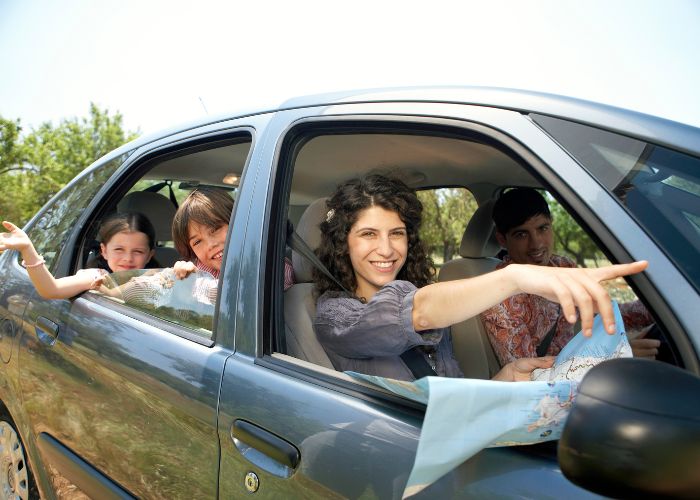The start of the summer in Spain means more traffic on the roads. This is made up of residents in Spain heading out of the cities to coastal or mountainous areas. But it also means more tourists in rental cars.
Just the simple fact of more traffic on the roads during the summer increases the possibility of accidents. So, what can you do to reduce the risk of an accident or breakdown on the road? And what should you do you if you witness an accident during your road trip?
Witness to a road accident
According to the DGT a fundamental rule must be applied in these cases: PAS (Proteger, Avisar y Socorrer) which translates to, Protect, Warn and Help.
- Protect the accident site to avoid new scopes. Stop to one side avoiding hindering traffic, turn on the emergency lights of the car.
- Then get out of the car with the vest on and put on the warning triangles or the V-16 light device if available. Notify the 112 emergency services of the place of the accident, number of injured and their situation and characteristics of the vehicles involved.
- Finally help the victims. Do not move the injured or remove them from the car unless it has caught fire. And if you are a motorcyclist, never take off your helmet. Wait for the emergency services calming the injured and if we know how, start with first aid.
Before you travel
You must prepare the car for high temperatures and for a more demanding use in summer trips. Not doing so, could lead to problems both from a mechanical point of view and a financial one.
According to its breakdown barometer, RACE (similar to RAC and AA) performed more than 1.2 million roadside assistance last year. These included problems related to batteries (23% of the total), tyres (12%), those related to the engine (7%) and those derived from traffic accidents (6%).
Especially in the summer traffic
Especially at this time of the year, you should pay more attention to certain maintenance check of your vehicle.
Air conditioning
Checking its condition and ability to cool are key before you begin your trip. There is nothing worse than being stuck in traffic in the summer or driving for any distance when it is hot, and you have no air-con.
Engine cooling system
With high temperatures, engines tend to get hotter, especially if you have an older car. Therefore, it is advisable to check the circuit for leaks, look at the radiator, the coolant and keep an eye on whether the car keeps running at the ideal operating temperature.
An oversight can cause the engine to overheat which in turn, due to lack of coolant could lead to a major engine failure. According to workshop statistics, 40% of breakdowns originate in the engine cooling system.
Oil and filter
When was the car serviced last? Was the oil and filter changed?
Wheels
With the heat and temperature of the asphalt they tend to deteriorate more quickly, especially if the correct pressure is not used. Therefore, check the tyre tread, and ensure they are at the correct pressure based on a fully loaded car.
Batteries
If your car is less than 5 years old, the battery should not cause any problems, unless you have left the car overnight with the lights on.
Brakes
Ask a mechanic to check the condition of your brake pads and discs, and also to ensure there is sufficient brake fluid.
The traffic accident rate in summer
As reported by the DGT, during the months of July and August last year, 191 people died on Spanish roads. Almost three-quarters (71%) of fatal accidents were recorded on conventional roads. While the accident rate among motorcycle users decreased (30%), the number of pedestrian deaths increased. Although 9 fewer than in 2019, 23 such deaths were recorded.
Also read: Top tips to enjoy your summer holiday driving in Spain


